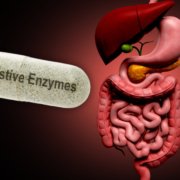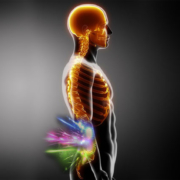How to Reduce Disease-Related Pain
The first two memos on pain were relatively easy: joints and nerves. From that point forward, it can get very challenging: Lyme disease, irritable bowel syndrome, shingles—the list of diseases that lead to pain could go on and on. To complicate matters, with the concern over opioid addiction, many people in pain don’t want to even try those medications. What do you do?
The key is to work with your physician and specialists to develop a strategy for pain relief. That will vary by disease. A medication that benefits the nerves for shingles pain may be helped by NSAIDS or other pain relievers, but NSAIDS may not be beneficial for someone with IBS; the absorption of the pain reliever may cause more bowel pain.
Two Strategies to Help
There are two things you can try that may directly or indirectly help with pain. The first is to reduce inflammation and as I mentioned on Tuesday, the supplements that may help are omega-3s, turmeric, and glucosamine. They can help reduce inflammation in more than joints.
The second would be to strengthen the immune system. Lyme disease is bacterial, shingles is a virus, and IBS is an attack on the lining of the intestines. While strengthening the immune system is not directly involved, it may assist the body in dealing with the cause and reduce the pain. To me, that means using probiotics, antioxidants such as vitamin C and E, and using herbs such as echinacea and garlic. As I said, it may not directly affect pain but may indirectly help the body cope with the condition.
The Bottom Line
The two strategies won’t work for every disease. Every form of cancer can result in different pain. Some diseases such as type 2 diabetes can impact the extremities and eyes in ways that require professional guidance. But in general, strengthening the immune system may help over the long term. That also means increasing the intake of vegetables and fruit and getting some exercise within the limitations of the condition. That’s a topic for another time.
What are you prepared to do today?
Dr. Chet









